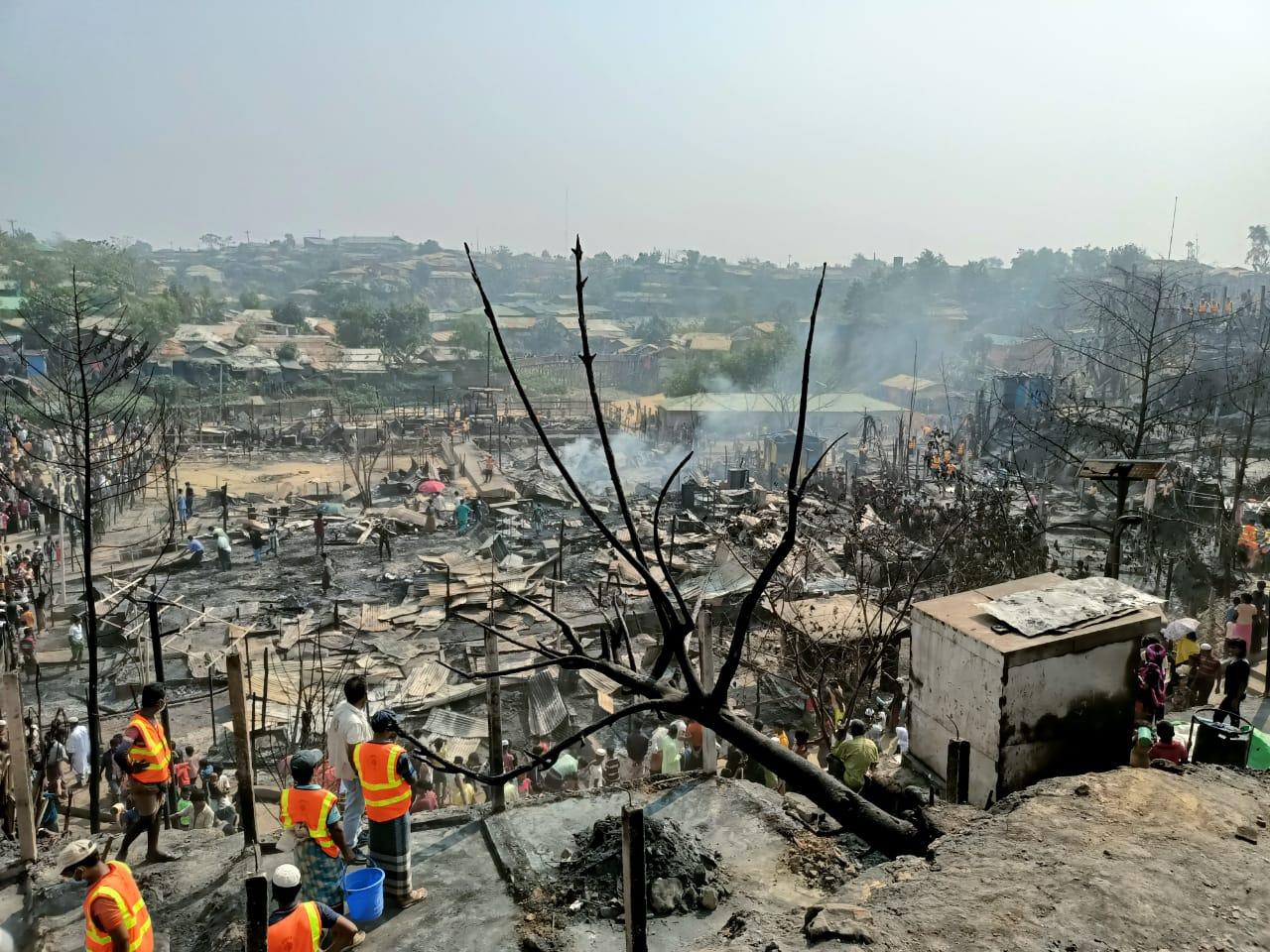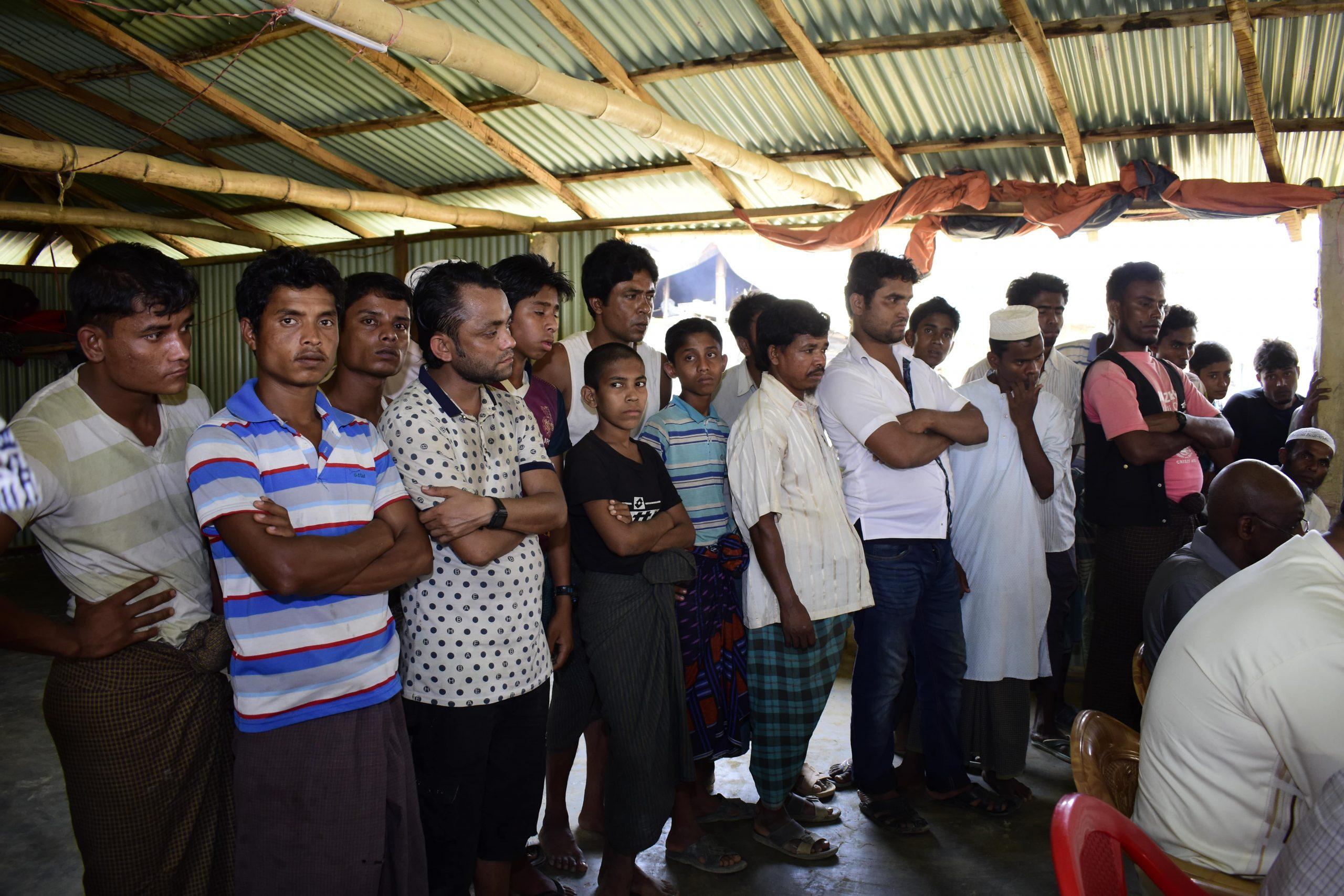Background: Profiting from widespread desperation in the refugee camps of Coxs Bazar, smugglers have dramatically…

The Everyday Way Rohingya Are Dehumanized In Burma
A story yesterday on Irrawaddy.com reported an incident in which two Rohingya men were arrested over a dispute between local Rohingya and ethnic Daingnet men, accused of stealing their goose.:
“RANGOON — Police in Arakan State’s Buthidaung Township have arrested two Rohingya Muslims accused of assaulting two ethnic Daingnet men in a quarrel stemming from disputed ownership of a goose.
The two Daingnet victims were knocked unconscious in the brawl and are receiving medical treatment at the local hospital, according to Aung Bar Lay.
The altercation ensued after a Rohingya Muslim claiming to be the owner of a goose confronted the two Daingnet men, who had taken the waterfowl from a stream in the village of Ngagyitauk and refused to return it to the man claiming proprietorship. A group of about 10 Rohingya men then attacked the alleged goose thieves, and an ethnic Arakanese truck driver who was attempting to mediate the dispute also sustained minor injuries but did not required hospitalization, the Buthidaung police chief said.”
It must be kept in mind that part of the dehumanization of the Rohingya is that they are almost always cast as “the perpetrators” of crime, even when they may be victims of violence and crime; this is the well-known tactic of blaming the victim.
The extreme depravities that the Rohingya face in daily life, which mean for many, not knowing if and when they are going to get their next meal, helps us to contextualize and understand why they would be driven to anger at the loss of something like a goose; a source of survival.
In any other country this incident would be an ordinary police matter but as the article notes, the response of police and local authorities was littered with racist and derogatory language to describe the Rohingya.
“Buthidaung Township police chief Aung Bar Lay confirmed that the two accused were taken into police custody on Friday, one day after the incident, adding that the search was still on for five ‘Bengalis’ who were also allegedly involved in the fight.”
Htun Aung Thein, chairman of the Buthidaung Township chapter of the Arakan National Party (ANP), said he had heard that seven “Bengalis” were arrested and that the medical condition of one of the Daingnet men was serious.
‘About 60 households are inhabited by ethnic Daingnet living in Ngagyitauk village and near there, what we call Ngagyitauk Kalar village, more than 100 Bengali households have settled,” the local ANP leader told The Irrawaddy on Tuesday. “Sometimes things like this happen, but it’s not a big problem.’
Kalar is a derogatory term used to describe individuals of South Asian descent, and Bengali is the official government nomenclature for Arakan State’s Rohingya minority, implying that they are illegal immigrants from Bangladesh despite many members of the Muslim group having lived in Burma for generations.” (emphasis mine)
What is extraordinary and important to highlight is the matter-of-fact manner in which officials erase the identity of the Rohingya and refer to them as “Bengalis,” over and over again. Chairman of the anti-Rohingya Arakan National Party in the area, Htun Aung Thein, comfortably uses insidious language characterizing the Rohingya not only as “Bengalis” but as “settlers,” implying that they are not indigenous but rather foreign “colonists” or so-called “illegal immigrants.”
Finally, as Irrawaddy.com points out, the usage of the term “Kalar” is derogatory and just another way to otherize the Rohingya Muslims. This is precisely the way dehumanization works and it is far too common and ordinary in Burma.



